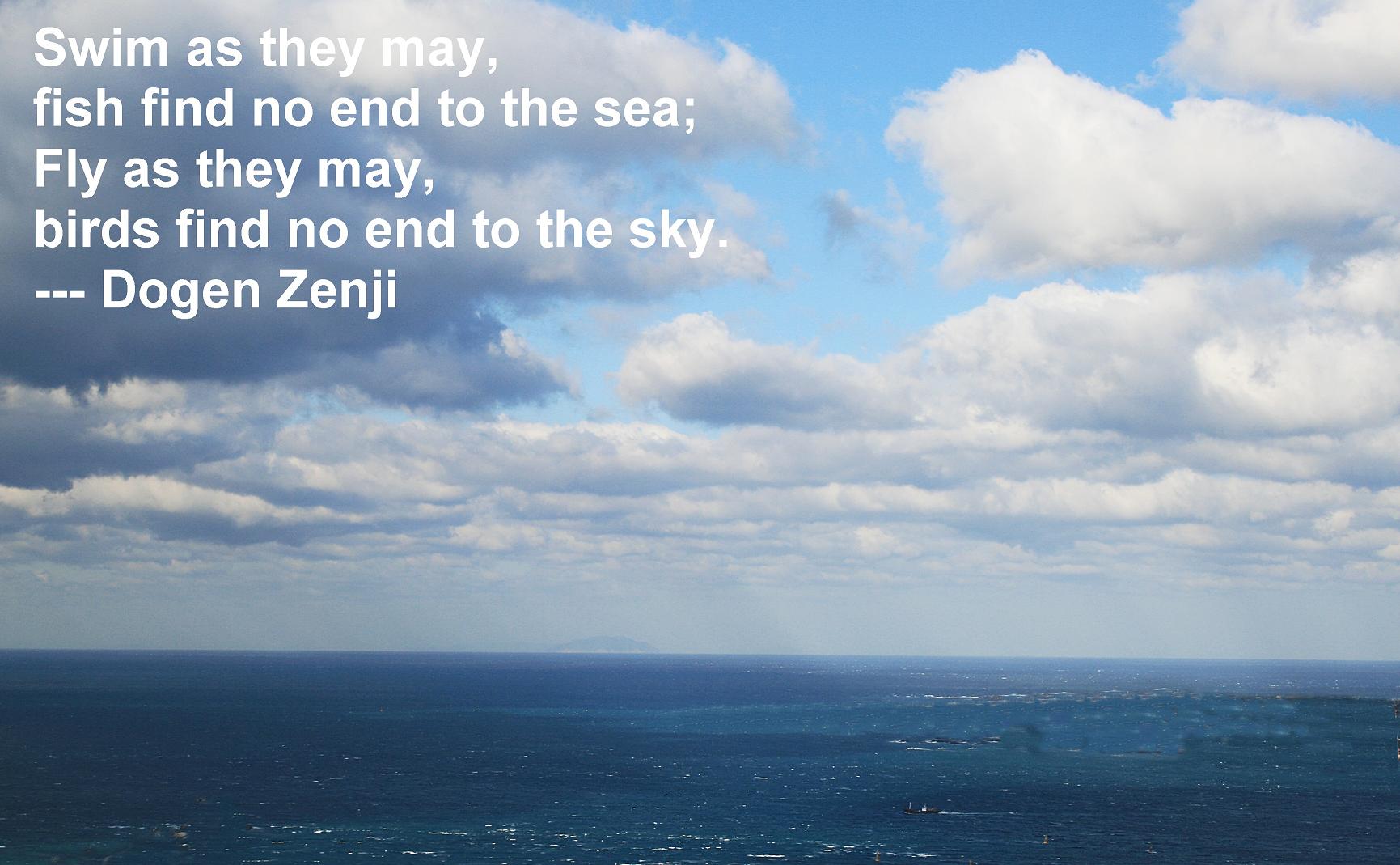
Dogen was the founder of the Soto (T'sao Dong Ch'an) Lineage of Buddhism in Japan. He came from a noble family, but his life was unhappy and difficult, because his parents died when he was a very young boy. Their deaths lead him to contemplate the impermanence of life, and at the age of thirteen, he became a Buddhist monk.
Dogen didn't realize the truth of Zen for a long time. The difficulty of Zen meditation is not the training, but the letting go of preconceived ideas. The experience of the true self is a state of awareness that cannot be defined; words cannot express living reality. In the experience of the true self, there is no "I" no reference point whatsoever.
Dogen was troubled by one particular question: if all human beings are born with Buddha Nature, why is it so difficult to realize it? Dogen finally studied with Eisai, a Rinzai master, who told him it was a delusion to think in such dualistic terms as Buddha Nature. With this answer Dogen experienced Satori. Eisai lived for a few more months; Dogen became his disciple and stayed with him. After Eisai's death, Dogen remained with Myozen, Eisai's successor, for eight years, and received the seal of a master.
Despite his profound insights, Dogen felt he didn't have complete understanding, and therefore, went with Myozen to China to study more. He practiced Chinese Zen (Ch'an) with Master Ju-Ching in China, but mistakenly sat in a quietest way, which merely lead to notional emptiness condemned by H.H. The Sixth Patriarch Hui Neng. One day Master Ju-Ching was scolding another monk for sleeping, and said, "The practice of Zazen (Sitting Meditation) is the dropping away of body and mind. What do you think dozing will accomplish?" Upon hearing these words, Dogen became fully Enlightened. He suddenly understood that Zazen is not just sitting still, but it is the "I" opening up to its own Reality. When preconceived ideas are abandoned, one experience the true nature of mind; life is experienced directly, non-dualistically, without ego interfering. He made the following comments about his experience:
"Mind and body dropped off; dropped off mind and body! This state should be experienced by everyone; it is like piling fruit into a basket without a bottom, like pouring water into a bowl with a pierced hole; however much you may pile or pour you cannot fill it up. When this is realized the pail bottom is broken through. But while there is still a trace of conceptualism which makes you say 'I have this understanding' or 'I have that realization', you are still playing with unrealities."Four years later, when Dogen returned to Japan, he said, "I have come back empty-handed. I have realized only that the eyes are horizontal and the nose is vertical." From this empty clarity came the great Soto sect of Japan. Dogen taught a way of sitting called Shikantaza, "shikan" means nothing but, "ta" means to hit, "za" means to sit. Shikantaza has remained the basis of Soto Zen up to the present; it unites the means can end of sitting meditation. There is no means to an end, because the end is now. The act of sitting itself is the actualization of Buddha Nature or Being. The meditation does not strive for Satori, but has faith on the teacher and teachings, and trusts that realization will come as a result of sitting practice. Dogen gave the following meditation instructions:
In doing Zazen it is desirable to have a quiet room. You should be temperate in eating and drinking, forsaking all delusive relationships. Setting everything aside, think of neither good nor evil, right nor wrong. Thus, having stopped the various functions of your mind, give up even the idea of becoming a Buddha. This holds true not only for zazen but for all your daily actions.

No hay comentarios:
Publicar un comentario